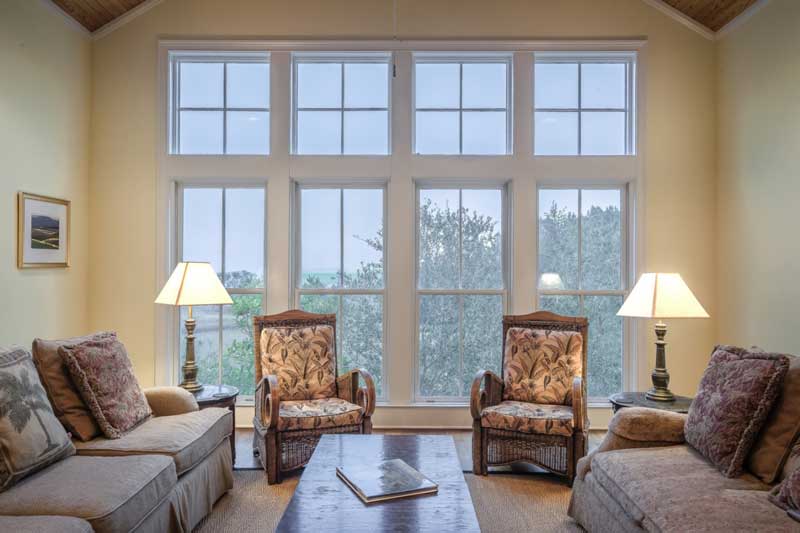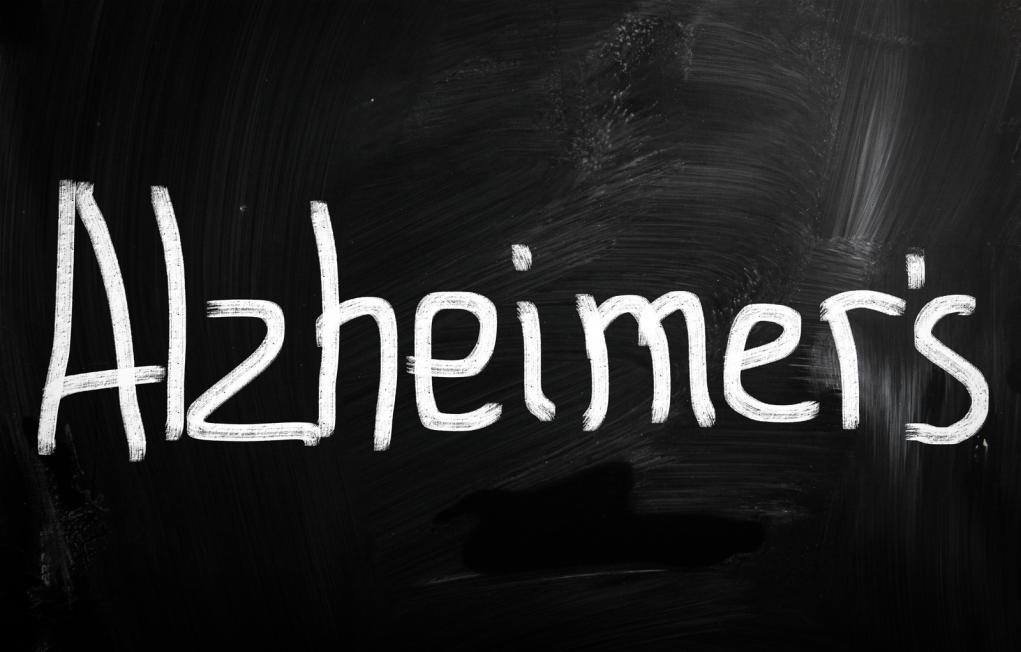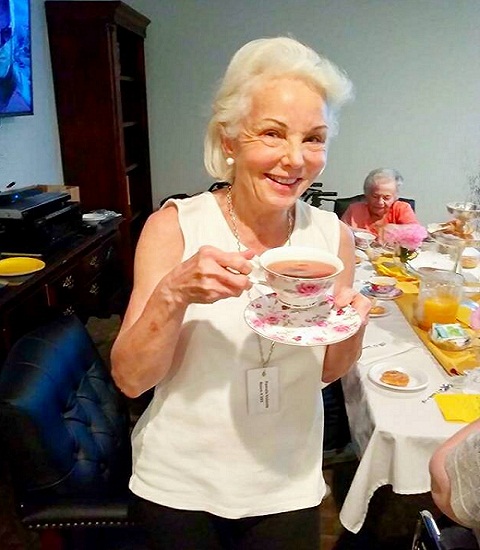Beating the Retirement Blues
Most people have their own visions of life after retirement. Some plan on taking trips, taking up an old hobby or spending more time with family and friends. However, things don’t always turn out as expected.
Retirees often find themselves feeling like they’re losing their sense of purpose and end up experiencing feelings of depression and anxiety. Also known as the retirement blues, these feelings can be pretty difficult to cope with and their management requires a considerable amount of time and energy.
Here are some tips that can help you deal with post-retirement blues.
Reducing Joint Pain in the Winters - Senior Care
According to studies by the Centers of Disease Control and Prevention, an estimated 15 million U.S. citizens reported arthritis related severe joint pain in 2015. Decreasing temperatures can be devastating for individuals suffering from joint pain, as persistent pain tends to worsen in low temperatures.
Muscle Building After 60: Paving The Path For Healthy Aging
As we age, our body’s functions deteriorate at several levels. We may be faced with changes in our musculoskeletal or cardiovascular health, we may experience restricted mobility. While these are all experiences that we can try to prepare for mentally and with our habits, what most seniors do not prepare for is age-related muscle loss, also known as sacropenia.
Sacropenia can start as early as 30 years in some cases and can cause a decrease of up to 5% muscle mass each decade.
Symptoms and Causes
Sacropenia may result in a reduction of the body’s ability to convert protein into energy. This may also lead to a decrease in muscle size and a loss of muscle fibers. The loss in energy may induce weakness, a decreased in stamina and may lead to a reduction in physical activity. Those suffering from sacropenia may also experience low levels of hormones, difficulty in maintaining balance and climbing stairs.
Sacropenia has the potential to greatly impact and impair a person’s functionality. Hence, it is crucial that a regular fitness regimen be in place to help you recover from the loss of muscle mass. Here are a few recommendations.
Ensuring Proper Nutritional Intake
As we age, our body’s daily calorie requirement lowers but we still need several other nutritional needs to account for. A balanced diet that includes lean protein, nuts, greens such as broccoli and spinach as well as food that is plentiful in calcium is a pre-requisite of a healthy diet for seniors. It is also crucial to take multivitamins daily and ensure that you are hydrated sufficiently.
Increase Reps, Not Weights
Increasing weights may lead to overexertion. Rely instead, on increasing the number of reps per exercise so that each muscle group is worked sufficiently to retain its mass. Break away from the typical pattern of 10 reps per set and work each muscle until you begin to feel fatigue.
Recovery Time Is Important!
According to research, it is more difficult for us to recover our muscles after a workout when we are older, as opposed to when we are younger. This means that older adults may subject themselves to the risks of overtraining, increasing their chances of overexertion and injury. It is therefore recommended that the workouts be spaced with rest days in between. Another way to ensure that you give yourself enough time to recover is by alternating between strength training and cardio workouts.
Looking for a senior living facility that helps seniors age healthily? Reach out to AvantGarde.
AvantGarde is a senior living facility and retirement community in Tarzana, CA that provides services in assisted living, elder care and memory care for Alzheimer’s and dementia patients.
Book a tour at the AvantGarde facility, by calling (818) 881-0055 or visit their website for an online tour!
Risks of Caring for Someone with Alzheimer’s Disease
Alzheimer’s Disease is a challenging condition for the individual dealing with it and their loved ones and caretaker(s). Caring for someone with this debilitating condition requires precise care, and if handled incorrectly, can be risky for both the patient and the caregiver.Read more
Senior Safety Checklist: Tips for Ensuring the Safety of Dementia Patients
Taking care of a senior loved one suffering from Alzheimer’s and dementia requires careful attention on behalf of caregivers.
With the progression of Alzheimer’s and dementia, a person’s abilities also change. A loved one suffering from such an illness can stay at home under the supervision and care of their families, as long as there are safety measures in place.
How Does Dementia and Alzheimer’s Affect Safety?
Alzheimer’s and dementia can cause numerous changes in the brain and body of the patient, which may affect safety. These changes progress differently, depending on the stage of the disease. Some examples of the causes of threat to safety are as follows.
Judgment
Patients may forget how to use household appliances.
Sense of time and place
Patients may forget how to navigate around their own street.
Behavioral Changes
Patients with dementia can become easily confused, disoriented, paranoid and fearful.
Physical Ability
Dementia patients may have trouble keeping their balance.
Senses
Dementia patients may experience changes in their vision, hearing, and ability to assess temperatures and may even fail to perceive depth accurately.
Safety Tips for Home
Dementia patients may sometimes find themselves in unsafe situations. The areas that invoke special concern are driving and wandering away from home.
Caregivers may also need to make changes in their homes by removing furniture, installing locks, etc. Here are a few safety tips for home that can help you ensure the safety of your loved one.
Discourage Dementia Patients from Driving
Dementia patients should abstain from driving. Not only is it unsafe but it can also be potentially illegal. To be on the safe side, ask your loved one’s healthcare provider if driving is safe for the patient. If not, you can take several steps to ensure their safety.
Begin by limiting their access to the car. Help them understand this.
Watch Out For Wandering

Patients with dementia may wander away from the house, fail to navigate or assess their location and hence lose their way back.
To ensure their safety, try having your loved one wear an ID bracelet at all times.
Install door chimes in your home so that you can be alert when doors leading out of the house are being opened. Ask your neighbors to call you if they see your loved one wandering around and try to go along with them if they insist on leaving the house for a walk. This can be very challenging for them; be empathetic.
Make Living Spaces Patient-Friendly
A crucial part of ensuring safety for dementia patients is by making living spaces clutter-free and installing safety alarms.
Make sure emergency numbers and home address are displayed visibly near phones. Install smoke alarms and keep your home well-lit. Move electrical cords out of the way to reduce the chances of tripping and falling.
Looking for Alzheimer’s Care and assisted living communities for a loved one in Tarzana, CA?
AvantGarde Senior Living is an assisted living community in Tarzana, CA that provides services in assisted living and memory care for Alzheimer’s and dementia patients. To book a tour at the AvantGarde community, give them a call at (818) 881-0055 or visit their website for an online tour!
3 Simple Tips to Help A Loved One Adjust to Assisted Living
Moving to an assisted facility can be a life-changing event for seniors. It can have a significant impact on them as well as their families.

It is, therefore, crucial to make the transition as smooth as possible. Below are some simple tips to help your loved one adapt to assisted living:
House reminders
Once your loved one moves into an assisted living facility, you can help them adjust to their new lifestyle by offering subtle hints of home.
For example, you can bring them their favorite book, cushion or a family photo album. This will make them feel more comfortable and relaxed.
Ask your loved one what they are missing from their home and bring it to them. At the same time, you can decorate your loved one’s new room to make them feel at home. Ask the facility members about the options you and your loved one have for decorating the room.
Stay in touch
It goes without that you must make an effort to visit your loved at least once every week. Visit and call them regularly.
Your loved one will be glad to see familiar faces in their new home. More importantly, visiting frequently will give you peace of mind that your loved one is receiving the care they need.
Before visiting your loved one, plan some fun activities for them. Give them presents, a card or anything that will make them feel loved.
Socializing
Many seniors struggle to adjust to a new environment. They often respond by cutting themselves off from others. Isolation can take a toll on a senior’s mental and physical health and well-being.

Encourage your loved one to socialize with other people in assisted living facility. Participating in group classes, games and other events will enhance their social skills and mental stimulation.
Getting used to a new environment can be daunting and overwhelming. With love, encouragement and support, your loved one’s transition to assisted living becomes easier and pain-free.
If you are searching for a reputable assisted living community near you, let AvantGarde Senior Living & Memory Care take care of your loved one’s needs. We provide comprehensive assisted living services for seniors in Tarzana, Los Angeles. We understand that each senior has a unique set of interests and needs. That is why we offer living arrangements that suit their lifestyle with personalized care and personal assistance.
Find out more information about our assisted living program online.
How To Help a Senior Memory Care Patient With Alzheimer’s Live Well
Did you know that Alzheimer's affects 5.7 million people in the US and this number is set to increase to 14 million by 2050? Moreover, Alzheimer's is the sixth-leading cause of death in the country.

Finding out that someone you love has Alzheimer's can be a traumatic experience. In order to care for them and ensure they live the best possible quality of life, here is what you should do:
Educate yourself
Understanding the causes and effects of the disease is imperative. The more you educate yourself on Alzheimer's, you will be in a position to understand how the disease affects them and how you can assist them.
Preserve your relationship with your loved one
Focus on your relationship with your loved one. People suffering from Alzheimer's need love, companionship and support. Communicate with them and plan out different activities for them to perform.
A recent study shows canine companionship can be beneficial for those with Alzheimer's. It can improve symptoms of anxiety or depression among patients.
Stay calm
The symptoms of Alzheimer’s can change daily. Naturally, taking care of someone with Alzheimer’s can be frustrating.
Be patient and keep your calm. Avoid venting out your frustrations on your loved one. Caring for a loved one with Alzheimer’s requires a lot of mental and physical stamina.

It is important to take care of your own health and well-being, enabling you to get through difficult times.
Explore support groups
Taking care of someone with any form of dementia is a full-time job. If you not able to give your best, you may want to move your loved one to a memory care facility.
Memory care facilities are designed for seniors suffering from memory-related issues.
Under the supervision of trained, experienced staff, seniors receive comprehensive support and assistance to perform daily tasks, such as bathing, medicine reminders, and more, and maintain a decent lifestyle.
At AvantGarde Senior Living & Memory Care, we understand that each senior has unique needs. Our living arrangements are designed to cater to their needs and ensure they receive topnotch levels of care and personal assistance.
Our memory care facility is suitable for those suffering from Alzheimer’s in Tarzana, California. Our team of knowledgeable, trained professionals are equipped with innovative techniques, memory cues, verbal and non-verbal communications to help residents live with dignity. In addition, they are compassionate, courteous and are dedicated to delivering the best care for seniors with Alzheimer’s or any other memory loss condition.
The Seniors Guide to Maintaining Independence In Assisted Living Facilities
A lot of seniors would prefer living in their own homes because it provides them a sense of security, and most importantly, a sense of independence. Everyone likes to have a degree of control in their lives, but as people age, not everything remains under their control.Read more
Moving Into an Assisted Living Facility – 5 Things to Keep In Mind

Moving can be overwhelming for anyone, more so for an older family member who may have spent decades in the place, creating memories. Leaving a familiar surrounding to move to a new home such as an assisted living facility can be tough.Read more








